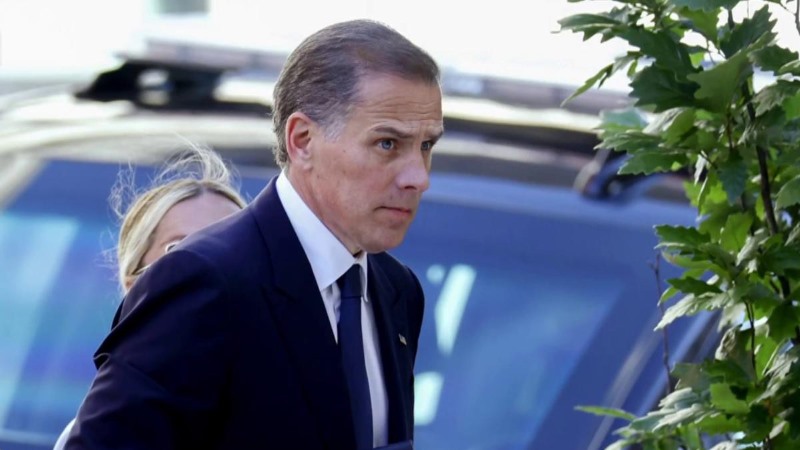Opinion
Hunter Biden Pleads Guilty to Tax Charges
The Hunter Biden pleads guilty saga took a decisive turn on Thursday, as the President’s son agreed to plead guilty to charges related to failing to pay $1.4 million in taxes, including on foreign earnings. This plea avoids the highly anticipated criminal trial, but the proceedings still highlighted issues surrounding accountability and justice.
Unexpected Proposal The Alford Plea
Moments before jury selection was set to begin, Hunter Biden’s legal team proposed an unexpected alternative: an “Alford plea.” This legal maneuver allows a defendant to admit guilt without acknowledging wrongdoing. Such pleas have been used in the U.S. since the 1970 Supreme Court decision in North Carolina v. Alford, which ruled that an accused could accept a prison sentence without confessing to the crime.
An “Alford plea” offers a strategic way to avoid full admission of guilt, according to wsj news.
Government’s Objection
The prosecution, led by U.S. Special Counsel David Weiss, objected to the Alford plea. Weiss’s team argued that allowing Biden to plead guilty without admitting wrongdoing would be unjust. “He is guilty,” stated the government’s attorney. “We came to court to try this case.” The government emphasized that Biden should not have the option to avoid genuine accountability.
Alford Plea’s Legal and Ethical Concerns
While Alford pleas are legally permissible, they are controversial. The federal government generally opposes such pleas for serious crimes unless in exceptional circumstances, with approval from high-ranking Department officials. The Justice Department’s policy manual for tax cases reflects this caution, underscoring the plea’s rarity and the scrutiny it requires.

BMW to Launch Hydrogen Cars in 2028 In Association With Toyota
BMW launch hydrogen cars within the next four years. This move is a key component of the German luxury automaker’s broader strategy to…
Defense’s Argument and Previous Controversies
Hunter Biden’s attorney argued that an Alford plea would not represent special treatment. “People do this all over the U.S.,” he claimed. Despite this, the plea would mark an unusual resolution in a case with numerous twists. Earlier, Weiss proposed a lenient plea deal, which he abandoned after IRS investigators told Congress other Americans would face felony charges.
Final Decision Straightforward Guilty Plea
Hunter Biden pleads guilty chose a straightforward plea after the prosecution’s objections. The focus now shifts to his sentencing. The decision to plead guilty instead of using an Alford plea might have been influenced by controversy. His plea deal’s initial controversy could have impacted this choice. The court will now decide if he will serve time.
Political and Personal Implications
The political ramifications of Hunter Biden’s case have waned with President Biden’s departure from the campaign trail. Both Hunter and the President have consistently denied any wrongdoing throughout the investigation. President Biden even suggested in 2020 that Hunter’s laptop, which revealed questionable behavior, was part of a Russian disinformation campaign.
Despite the plea deal’s aim to quietly resolve the case, Hunter Biden’s lack of remorse and failure to disclose foreign income raise concerns. The sentencing will need to address these factors, as Hunter’s privilege as the President’s son remains a contentious issue. President Biden stated he won’t pardon his son, but it’s uncertain if he’ll keep this promise after the plea deal.
Subscribe today for exclusive access to The Wall Street Journal’s daily news, expert stock picks, podcasts, live TV, and more. Stay informed on U.S. and global markets. Don’t miss out—subscribe now!

